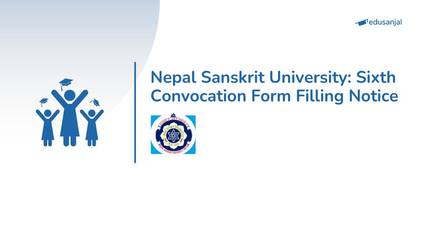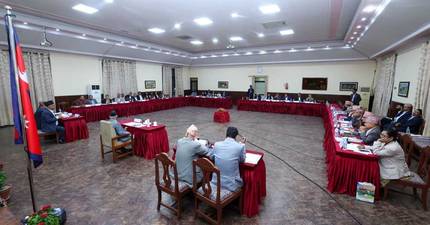Officials at Tribhuvan University expressed their delight over the recent appointments of the Vice-Chancellor, Director of Education, and Registrar, highlighting the merit-based selection process.
During a meeting with Prime Minister Pushpa Kamal Dahal 'Prachanda' at Baluwatar, they commended the transparent, competitive approach adopted for these appointments, signaling a positive shift in the academic sphere.
Prime Minister Dahal underscored the significance of meritocracy, stating that it's essential for reforming the university and education sector. He emphasized his commitment to fostering an environment conducive to merit-based appointments, noting the success.
Furthermore, he emphasized the importance of healthy competition in all sectors to foster governance, development, and prosperity in the nation.
Dr. Gouri Shankar Lal Das, Dr. Govinda Pokharel, Dr. Sanduk Ruit, Dr. Arjun Karki, Dr. JP Agrawal, Dr. Naresh Man Bajracharya, Dr. Ashim Dhakal, Dr. Bhagawan Koirala, Dr. Bishnu Upreti, Dr. Dharma Kanta Baskota, Dr. Devendra Raj Pandey, Dr. Lava Deo Awasthi, Dr. Madan Upadhyaya, Dr. Mahesh Maske, Dr. Kedar Bhakta Mathema, and 66 other intellectuals present at the meeting lauded the Prime Minister's decision to implement appointments through open competition, considering it a significant step towards enhancing the quality of higher education in the country.
The discussion also touched upon the need for political parties to uphold the autonomy of educational and technical institutions and avoid undue interference.
The officials at the meeting expressed gratitude for the Prime Minister's commitment to non-interference in policy matters and hailed this stance as a positive step forward.
The commitment to merit-based appointments and the preservation of institutional autonomy signal a promising trajectory for higher education in Nepal, with officials optimistic about its positive impact on the sector.













